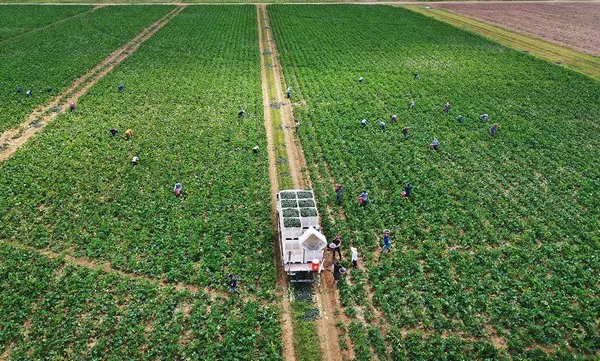London — A recent analysis by the Food Standards Agency (FSA) has identified a troubling connection between concerns over food prices and the likelihood of engaging in risky food safety practices. The findings, derived from the Consumer Insights Tracker survey, cover the period from July 2023 to March 2024 and reveal that financial stress may be driving individuals to compromise on food safety to cut costs.
The survey, conducted monthly, includes responses from 2,000 adults across England, Wales, and Northern Ireland, assessing their attitudes and behaviors regarding food safety and related topics. The data indicates a notable correlation between financial pressures, including the cost-of-living crisis and rising food prices, and an increase in risky food handling practices.
In March 2024, 25% of respondents admitted to engaging in at least one unsafe food behavior in the previous month as a cost-saving measure. Such behaviors included shortening cooking times or turning off refrigerators and freezers to conserve energy. These risky actions were particularly prevalent among individuals from ethnic minority backgrounds, those with health conditions or disabilities, and individuals under 35.
When surveyed on various concerns, respondents prioritized food prices, followed by issues related to ultra-processed foods, food poverty, and inequality. Those most worried about food affordability were more likely to report engaging in unsafe practices, such as cooking food at lower temperatures or consuming items past their use-by dates due to financial constraints.
Michelle Patel, Deputy Director of Analysis at the FSA, commented on the findings, stating, “This latest data underscores the ongoing concern about food costs among consumers. It is especially alarming that some individuals are resorting to unsafe food practices as a means to save money.”
Despite these concerns, overall confidence in the food supply chain has improved, rising from 55% in July 2023 to 60% in March 2024. Approximately 75% of respondents expressed confidence that food safety measures are effectively enforced within the supply chain. However, public awareness of the FSA remains mixed; while over half of respondents have some knowledge of the agency, a significant portion knows little about it, and one-third have heard of it but lack detailed knowledge. Trust in the FSA’s commitment to safeguarding food safety fluctuated between 55% and 62% as of March 2024. Nonetheless, over 75% of participants believe the FSA is reliable in addressing food-related risks and communicating openly about them.
In a related development, a recent survey in Germany by the Federal Institute for Risk Assessment (BfR) highlights a gap in public awareness about certain food safety issues. Conducted in February 2024, the Consumer Monitor survey of 1,000 participants revealed limited knowledge of Per- and polyfluorinated chemicals (PFAS), persistent industrial compounds that pose environmental and health risks.
The survey found that while half of the respondents were familiar with Listeria, only a quarter were aware of Campylobacter. Conversely, over 90% of respondents knew about microplastics in food, genetically modified food, and antibiotic resistance. Concerns about microplastics and antibiotic resistance were prevalent, with around two-thirds expressing unease. In comparison, only a quarter were concerned about Listeria, and 12% about Campylobacter.
The BfR’s Professor Andreas Hensel noted, “The Consumer Monitor reveals a consistent awareness of consumer issues, with a stable perception that man-made risks are viewed as more hazardous than natural ones.”
These findings underline the need for continued efforts to address both financial and informational gaps in food safety practices and public awareness.
Related Topics:



























